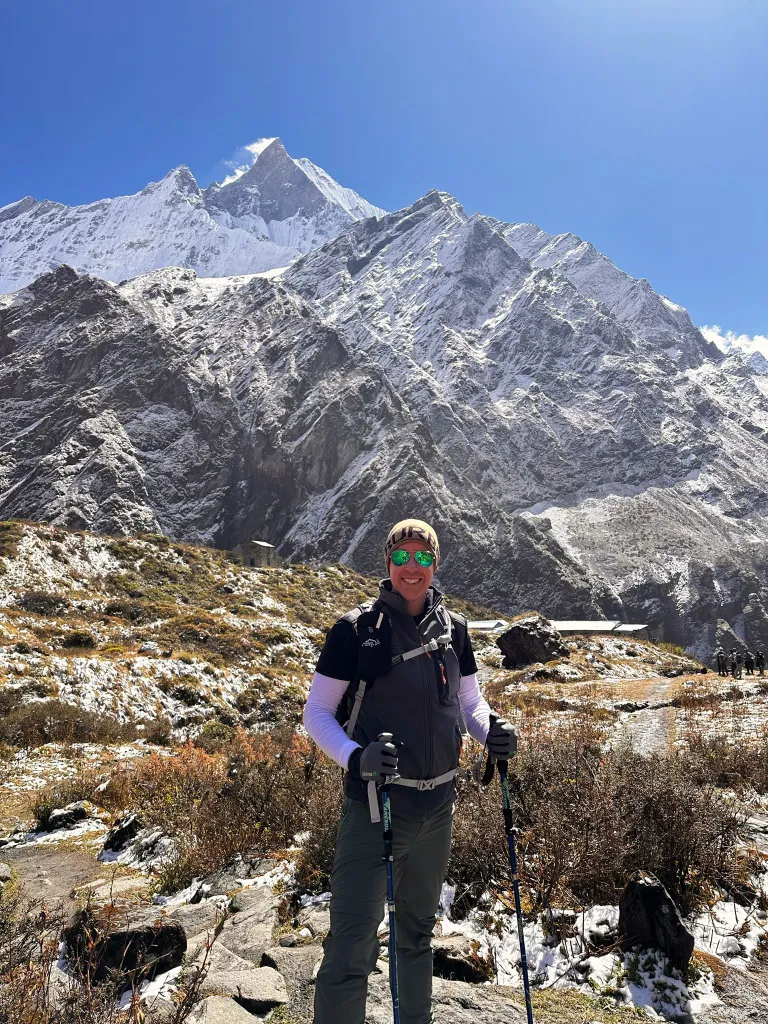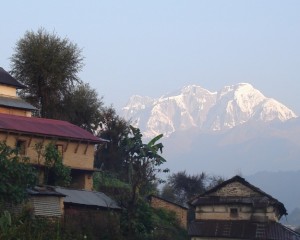Nepal Bans Solo Trekking for Tourists
Nepal is a popular trekking destination for travelers from all over the world. Every year thousands of tourists visit Nepal with the aim of various activities from trekking, jungle safari, and sightseeing to many others.
For many years, people have been visiting either in groups or solo to pursue their traveling goals. Soon, Nepal is changing how tourists can enjoy the trip to Nepal by bringing a new rule that is about prohibiting the solo trek. Mountain adventures in Nepal will now only be possible under the supervision of a guide for foreign nationals.
Independent travelers who are planning to explore the Himalayas of Nepal will now need to hire a licensed guide with them who will accompany them throughout their trip. The rule will be completely proclaimed from April 1, 2023. The Nepalese government just announced the decision on March 2, 2023. This rule is expected to enhance safety measures and provide climbers with unrivaled expertise on the best trails.
As per the director of the Nepal tourism board, the decision for trekking in the Himalayas only with a professional guide has been made so that tourists feel completely secure during their travel to Nepal. He added that many tourists have often found themselves getting lost or facing a lot of problems of insecurities during the solo treks. In order to mitigate the problem, the team came up with the decision to put a ban on solo treks.
The decision to ban solo trekkers has been made mainly due to various reasons, which include their unfamiliarity with the local terrain and culture, their inability to communicate with the local people that leads to further more problem, and finally the fact that they have travel restrictions in many areas.

Solo trekkers often choose to travel alone for multiple reasons. They want to have freedom in choosing the location, duration, pace, and scope of the trek. As this will not be a further option for the mountains in Nepal, some tourists might choose to travel to other destinations. Nepal is full of varieties of landscapes, diverse cultures, and places filled with beauty that can be trekked.
Many of the certified trekking companies in Nepal have already received notification about the change in the rule which was confirmed by the travel operator, Tapashya Singh Thakuri, Spirit of the Himalayas. Despite the official news that may not be appointed in all of the trekking companies, the rule will soon be appointed. So, all independent foreign travelers, including all those tourists traveling solo or in groups will have to book a licensed guide for any form of trekking activities.
Currently, Solo trekkers will need an official route permit and a trekkers Information Management System card to trek solo in the wilderness of Nepal. The cost for the permit is 2,000 Nepalese Rupees per person. The price was previously 1,000 Nepalese Rupees which has been doubled now.
Travelers will no longer be able to apply for the permit without booking a guide company that will be together with them throughout the trek.This newly approached rule has brought various decisions from people. Some of the representative from the adventure tourism industry has lamented the rule as the loss of freedom to explore the great wilderness of the world.
Some of the licensed guides and owners of the traveling agencies believe that the change in the rule is misguided. Some of them answered that “I respectfully disagree with the recent decision by Nepal Tourism Board to mandate guides for all trekkers. While having a guide can enhance the trekking experience and improve safety, it's not always the case.â€
Most people questioned the decision of the Nepal Tourism Board. They asked if instead of imposing the rule they should have worked collectively on training guides to provide a better compelling option for trekkers. They also asked if safety is the primary concern, the new rules should also include Nepalu trekkers as they are less prepared than the foreign trekkers. As stated by the Nepal Tourism Board, the rule is imposed to increase safety concerns.
Some of the social media users have been suggesting that the board has implemented the rule for financial gain, as a way to increase employment opportunities for the Nepalese guides. With the supporters and dis supporters, there are also People who have clearly said that the decision of the board has all its advantages and disadvantages.
The decision will enhance the safety of travelers on one hand, ensuring they have a better understanding of the local culture and customs and on the other hand, it may increase the cost of travel. We will all know the effectiveness of the decision later, which will depend on its implementation and how the rule will be perceived by travelers.

The country should overcome the problem that may arise after the implementation of rules. Foreign travelers might get diverse in their destination due to the decision of the board, hence, they have to make sure that the travelers are not affected by the new rule. Nepal is home to thousands of peaks and mountains that offer trekking and expeditions.
Most foreigners hope to ascend the expeditions, and for this, they must need a professional guide for that. Hence, the rule will not make a major impact on the number of tourists aiming for the expedition. But there are other trails and trekking routes that might get affected.
Some of the major treks that are often traveled solos, such as Annapurna Base Camp Trek, Ghorepani-Poon Hill Trek, Rara Lake Trek, and the Langtang Valley trek will now not be trekked alone after the imposed of the new rule.
This might affect the number of tourist entering this region. As per the survey from Nepal Tourism Board, more than 50,000 tourists trek to the various trekking destinations in Nepal with or without a guide or a porter. It’s yet to be clear and confirmed how the Nepal Tourism Board has planned to roll out or monitor the new rule.
Is the decision to ban solo treks in Nepal a good decision for International trekkers?
Implementing the new rule to ban solo trekkers might result in some significant advantages for foreign tourists. This course of action will guarantee a safer experience for all tourists. They will have their time well spent in the environment with guides who will encourage a sense of community on the trails.
Now, tourists will be engaged with local communities and their cultures, can expand their skills, understand the rich history of Nepal and enjoy a good time in Nepal. The change in policy will reaffirm the commitment to the well-being and satisfaction of their tourists.

Besides, as most of the treks are physically demanding in Nepal, the presence of an authorized guide will offer great support and assistance to boost morale and safety on the journey. The policy also tends to reduce the likelihood of lost or injured trekkers.
Most of the time, solo hikers are often more susceptible to accidents and emergencies as there will not be anyone around to provide essential help. The new regulation will surely provide security, balance, and proper utilization of rules. The new policy ensures that the trekkers have the necessary permits, equipment, and guides to navigate the terrain.
Why did the government make the decision to ban solo trekkers?
Solo Trekking has been a popular activity in Nepal for a long time. There are multiple destinations where you can trek alone. Destinations like Langtang National Park, Ghorepani PoonHill Trek, Annapurna Base Camp Trek, and many others often trek alone.
Trekking alone gives much rise to problems of getting lost. All the solo trekkers might not successfully ascend the journey which might cause them to get lost. The survey has shown that most of the trekkers who are lost are found to be trekking alone. Hence, the government has aimed to reduce the problem of trekkers being lost and missed.
Besides, the government also plans to impose rules to make the destination clean and clear. Taking a guide would help them to aware of all the trekkers to not harm any of the natural resources and beauty.
The increasing pollution caused by throwing plastics and non-degradable waste in the mountains has also been a problem that could be sorted easily if a guide or a porter can aware the trekkers to not throw any of the waste in the mountains.






